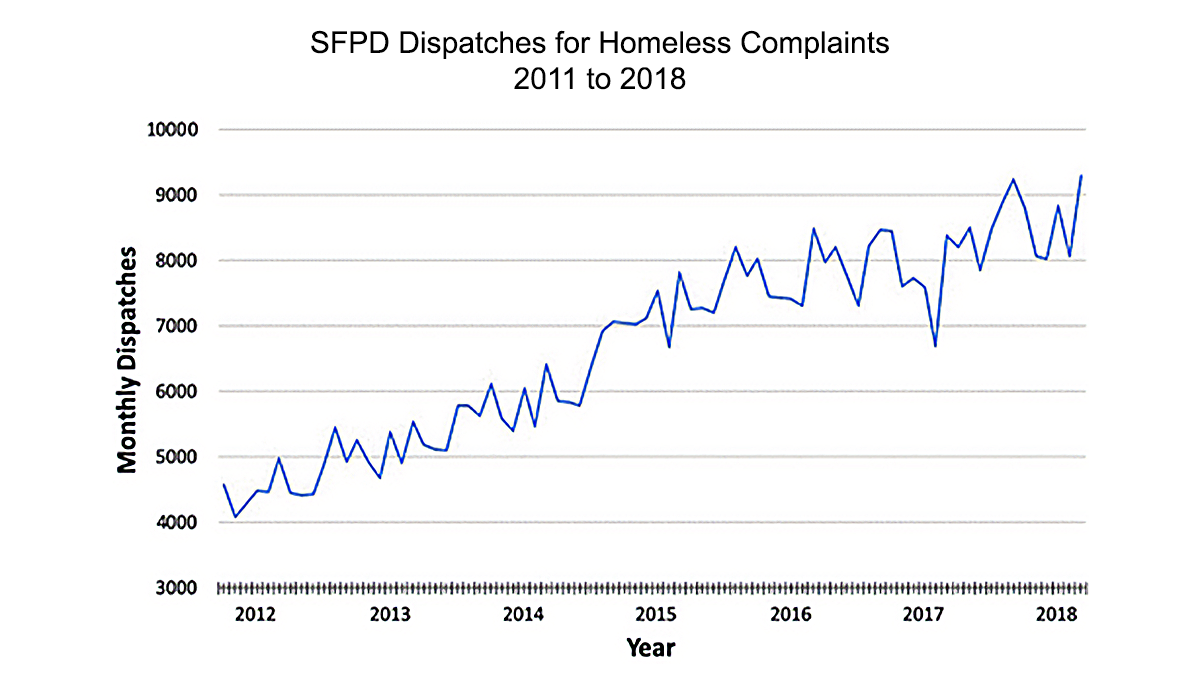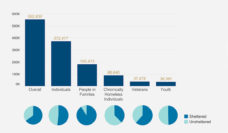San Francisco is known for a number of things, among them sourdough bread, the Golden Gate Bridge, outrageous rent, and a substantial homeless population. To fight homelessness, the city expanded laws punishing those without homes instead of fixing rent policies. To date, San Francisco has the highest number of anti-homeless laws in the country—leading to an increase in negative perceptions and media coverage.
Anti-homeless laws have produced an increase in public complaints, ironically dubbed “quality-of-life calls”. From 2012 to 2017, the number of complaints targeting homeless people and encampments increased by 781 percent, while the homeless population increased by only 8 percent. In other words, the homelessness crisis is more perception than reality. The trend of anti-homeless laws’ overbearing presence is not exclusive to the Bay Area. More than 90 major US cities have similar laws.
The result: increased policing. Complaint-based policing has major impacts on the quality of life for an already vulnerable population. A 2019 study by Chris Herring observed the impact of anti-homeless laws on the San Francisco homeless from 2014 to 2017. The image above depicts the increase in police action triggered by complaints. Herring found that most police dispatches result in move-along orders leading to a never-ending rotation of individuals shifting through public space. Forcing people who are homeless to keep moving weakens social support and perpetuates instability. Arrests are not common, but citations are. When left unpaid, tickets accrue expensive penalties.
Citations inhibit the ability of individuals to access services, and find housing or employment. The threat of losing personal items, in particular, means individuals would rather miss appointments or lose an opportunity for a job than leave their belongings behind to be disposed of by city employees.
Complaint-based policing and anti-homeless laws perpetuate the cycle of poverty, preserving one person’s “quality of life” at the expense of another’s.
Databyte via Chris Herring, 2019: Complaint-Oriented Policing: Regulating Homelessness in Public Space. American Sociological Review 84, 5.














